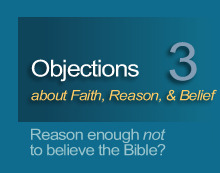WHY THIS?
Believing there is no God, atheists might also believe hope is a concept that is foreign to them.
Not so.
"Atheists and atheism have nothing to do with hope."
RESPONSE:
First, I agree atheism is not all about hoping. Atheists, nevertheless, still practice hope in the basic sense that hope means to prefer or desire, or rely upon a particular outcome to a given situation or scenario. Hope, to the Christian, for example, includes the desire that Jesus will gather them to himself after their death and fulfill the other promises he made while on earth. The Bible calls believers to rely on that.
To this, an atheist might say,"Well I don't hope - period - because I don't believe in Jesus, life after death, etc." True enough that an atheist might not have any expectation of existence after death. But I expect it is also true that atheists hope, or "prefer" if you will, that they not wake after their death to find themselves in inescapable and terrible trouble with a god as described in the Bible. That was my hope when a similar topic was raised to me while sitting in K-State's Farrell Library foyer twenty plus years ago.
So concerning the question of whether rejecting Christ will result in either agonizing condemnation or no-harm-done, practitioners of atheism must indeed admit to having, and in effect be relying upon, a preferred outcome. Atheists do indeed hope.
Second, as for the value of hope or hopes, even false hopes provide something positive; albeit fleeting or imagined. "I hope the pilot knows what he's doing." "I hope this frozen pizza tastes as good as the one on the box looks." Ultimately however, one's hope is no better than the object of that hope or desire.
Perhaps it can be said that atheists largely don't see the value in a Christian's hopes because they look at the various evidences and don't see God, the object of those hopes. Christians look at the same evidences, and they do. So whatever you do, definitely look at those evidences, closely, so that you may find yourself among the group in which you truly belong.
Third, there is the idea of a non-theist's pride in trying to be self-reliant (vs. hoping in God). The biblical view of God is that he works through us; not or not just for us. Self-reliance is excellent to the extent none of us should allow ourselves to become a burden on others if we can help it, or, generally speaking, not to expect something for nothing. But it is bad in the context of believing we can or must qualify ourselves for salvation, or believing that the world is devoid of God's influence.
Any Christian driving down the road who says "God is my co-pilot" and then lets go of the steering wheel is being ignorant of the total teachings of Scripture. This is not acting in cooperation with God's will. It's more a foolish expectation of being catered to.
Another false concept is an afterlife consisting of laying around in clouds playing harps and being waited on by angels. The Bible says we were created to worship God and tend his creation. We practice that in part now, and I expect there is a much greater and more rewarding fulfillment to come.
On the other hand, a person who might say "There is no divine influence in the world" is probably like a fish that says "But I don't feel wet". It's there, they just haven't recognized it. The influence concept really goes back to the topic of origins (earth, universe, man, etc.) which is covered elsewhere on this site.
See also:
What's most important to non-believers?
What is faith?



Expanded!